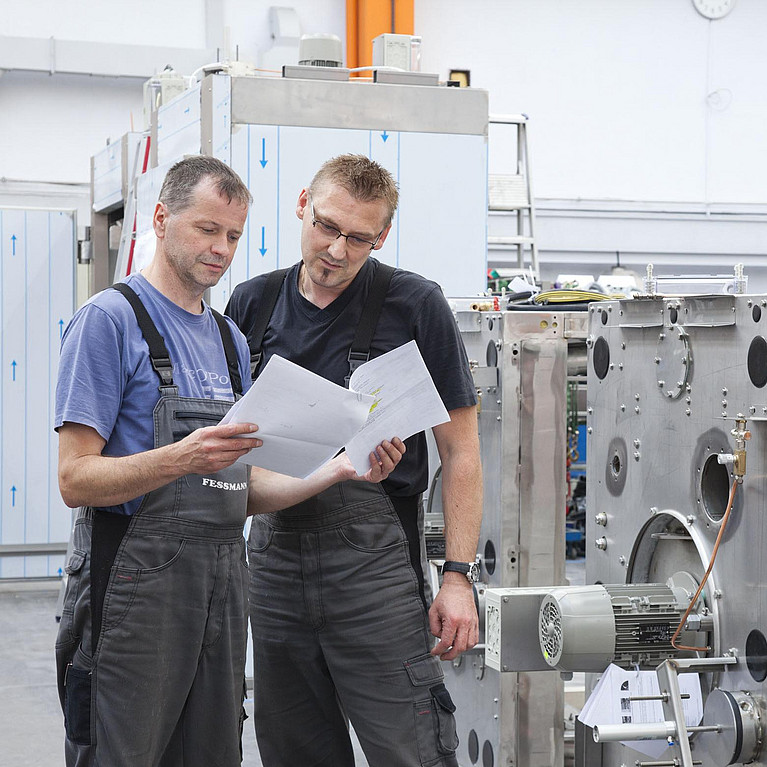With its comprehensive product range, FESSMANN can deal with a great number of customer needs. A large range of various standardised machine types is offered in the scope of this, making it possible to perform many different thermal processes. In order to meet the customers' requirements even better, the systems and their equipment will, however, also be constructionally customised to the customer. For Fessmann to meet these demands with the shortest delivery times, highest flexibility and quality, the design department has implemented complex processes and a contemporary EDP landscape.
The term of "standardisation" means, among others, making processes, types or parts consistent with the target of increasing efficiency in many areas. At first glance, the term also suggests a certain loss of flexibility or even an inability to accommodate more comprehensive customer wishes as well, however. Let us explain below why this is not the case upon closer scrutiny.
Standardisation at FESSMANN commences with a clear definition of the product range that lists all the available plant types. Only this definition of the FESSMANN standards makes it possible to standardise all processes from order generation to order processing, production and test sequences at the individual welding workplaces, all the way to the assembly sequences at the construction site. They also offer the basis for an effective continuous improvement process. At the moment, approx. 140 plants of various sizes and heating methods are part of the active portfolio.
In the scope of standardisation, equipment versions for all systems are defined already during the development process, including the trolley number, heating types and execution of the doors. All systems are therefore stored in the ERP-system SAP in the form of maximum bills of material. The maximum bills of material contain all parts and components that a system can be made of for all possible configurations and thus form the "recipe" for manufacturing the plants. The maximum bill of material for a Ti3000 with four trolleys and HD heating alone makes up approx. 32000 data records. In order to compile the plant needed by a customer from this gigantic amount of data, the product configurator is programmed in the background. It compiles the customer-specific order bill of materials very quickly in SAP, based on specified selection options in compliance with defined standards. Looking at the possible variations of the basic and additional equipment of a TUBROMAT T3000 with 1 trolley and electrical heating based on the above explanation, an incredible 1.8 billion different variations of one and the same plant will be possible.
All in all, FESSMANN offers a very high degree of standardisation with an extremely high number of customisation options! The next article will describe how FESSMANN deals with individual customer solutions in its design department.

